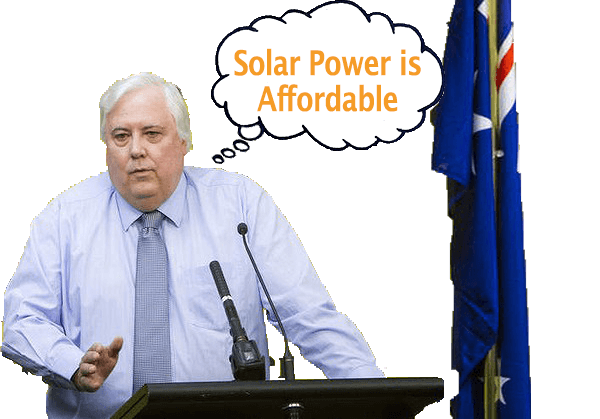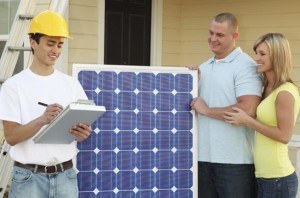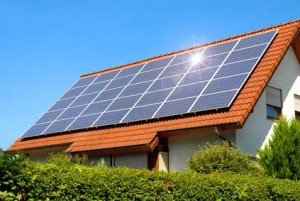When shopping around for solar power systems, the first question you are likely to ask is ‘Should I go for a cheaper system, or will splashing out on a more expensive system be a better investment for the future?’
Quite often customers will chomp at the bit too early and only think about the immediate price of the solar panels, rather than their own energy matters. Hold your horses! This is a serious purchase and you should first calculate your exact needs before you compare solar panel prices.
The cost of solar panels in Australia can vary greatly. Generally the size of the system is the main contributing factor to price, however many other aspects can also affect the solar panels’ price. Typically, residential solar power systems in Australia vary from 1.5kW (6 x 250W panels) to 10kW (40 x 250W panels) in size. A 5kW solar system is generally seen as a ‘decent sized’ average.
To determine which solar panel system is best for you, you’ll need to consider:
- What you are prepared to spend
- The amount of appropriate roof space you have available
- How much power you want to generate and what you will use
- The quality of the components you want used in the solar power installation
- The level of service you expect from your installer, including after-sales service
- Technicalities you can handle involved in the installation, i.e. – lead time
Going for the biggest system possible may not always pay the most dividends. Before you start perusing the market for what appears to be the best deal, you should first find out:
- how much energy you currently use
- how much energy your panels will generate
- what proportion of the solar energy generated will be used by your household, and what will be sold back to the grid
- what your calculated return of investment will be.

The Australian Solar Credits Rebate entitles home owners across the country to receive a point of sale discount when you purchase home solar panels. Again, the buck doesn’t stop there. The more solar panels for home that you have installed, the higher the financial incentive.
Average solar panel prices in Australia
With so many variables to take into account, you’re probably thinking, ‘Is it all worth it?’
This is where our solar power calculator comes into play. Our very hands-on and easy-to-use our solar power savings calculator does all the hard work for you. Calculating exactly what your return on investment will be, before you start looking for solar quotes, will enable you make the best choice for your needs.
In any situation, there has never been a better time to buy solar panels in Australia. In less than 5 years, the price of solar panels for home has dropped by as much as 50% in some cases. Consider that back in 2010 you were looking at $17 000 to $20 000 for a 5kW system, that same system now can be bought for between $7000 and $15 000.
Then there’s the Small-scale Renewable Energy Scheme, a government rebate aimed at creating a financial incentive to install solar panels, wind turbines, hydro systems, solar water heaters and air source heat pumps – meaning solar power systems prices are even more affordable than ever.
What is the cost of solar panels?
To give you a general idea of price, below is a break down on solar panel prices including solar power installation costs.
Solar panel price is only one factor, however, much like buying a new car; you tend to get what you pay for. The cheapest system may not necessarily be the best value for money and the most expensive solar gain may be overkill for what you want.
At the end of the day you will want a system that is reliable, cost-effective, and will save or even earn you money. With so many options on the market, finding a solar power system that meets your budget requirements is easier than ever. Determining exactly which one is best for you will be the harder decision.

Going off the power bills that I have seen in my time as a consultant, I would say that the average Australian household would more than likely need a solar power system between 3.0kW and 5.0kW.
Most energy consultants will be able to give you a more accurate price estimate on solar panels for sale based on your past electricity bills when they do an on-site assessment, just ask the question. The more power usage history that you provide your solar consultant, the more accurate the estimate will be.
The key contributors to stand-alone solar power systems prices are:
Solar Panels
The type of solar panel you choose will make a huge difference to the overall cost of the system. The two main choices of solar panel type are crystalline and thin-film. Within these two main categories there are numerous sub-categories. As a general guide, crystalline panels will cost more to buy because they tend to be more efficient in cold climates and have a long lifespan. Thin-film panels are not as strong, but are equally efficient in hot and cold climates, and they cost much less to purchase.

Solar Controllers
The choice of controller is really up to your individual preference. Factors to consider are brand, price and warranty, as well as other miscellaneous aspects, such as aesthetics.
Solar Storage Batteries
Batteries are the necessary component of solar power storage systems. As with solar panels, there are many different options available, each with their strengths and weaknesses. As a general guide, solar batteries fall into one of two categories; sealed or unsealed. Sealed batteries are more expensive but are safer and can be used indoors which will provide better efficiency due to temperature stability. Unsealed batteries are cheaper but can be dangerous because they can leak corrosives, contain toxic metal and metal salts, and release gas while charging which is both toxic and flammable.
Solar Inverters
Often overlooked but extremely important, the inverter is what connects your solar system to your home, so this is a component where you will need to make some careful decisions. Similar considerations to those necessary for controllers, but in this case, you also need to think about the energy capacity of the inverter. Generally speaking, if your solar array provides 5kW of energy then your inverter should have a capacity of at least 5kW.
Delivery and Installation
The more remote your site is, the higher the costs for delivery and installation will probably be. You often have a choice about who will install your system, but choose an accredited installer to ensure you get any rebates you are entitled to.
With Australian Solar Quotes, not only can we help you establish what sort of solar power system is right for you, we can also put you in touch with three accredited installers, right at your fingertips, to help you find the best quote in your area.



